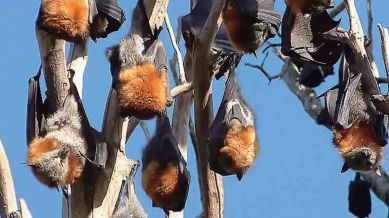Anonna Dutt is a Principal Correspondent who writes primarily on health at the Indian Express. She reports on myriad topics ranging from the growing burden of non-communicable diseases such as diabetes and hypertension to the problems with pervasive infectious conditions. She reported on the government’s management of the Covid-19 pandemic and closely followed the vaccination programme. Her stories have resulted in the city government investing in high-end tests for the poor and acknowledging errors in their official reports. Dutt also takes a keen interest in the country’s space programme and has written on key missions like Chandrayaan 2 and 3, Aditya L1, and Gaganyaan. She was among the first batch of eleven media fellows with RBM Partnership to End Malaria. She was also selected to participate in the short-term programme on early childhood reporting at Columbia University’s Dart Centre. Dutt has a Bachelor’s Degree from the Symbiosis Institute of Media and Communication, Pune and a PG Diploma from the Asian College of Journalism, Chennai. She started her reporting career with the Hindustan Times. When not at work, she tries to appease the Duolingo owl with her French skills and sometimes takes to the dance floor. ... Read More
Kerala Nipah death: What you need to know to prevent it?
The monoclonal antibody has to be administered in the early stages of the disease, before encephalitis sets in

A 24-year-old from Kerala’s Malappuram district, who died earlier this month, was confirmed to be positive for the Nipah virus. This was the second death due to the infection reported this year. The state health department has identified 151 contacts — those at the highest risk for the infection have been asked to remain in isolation while samples of five people who had developed symptoms were taken.
When a 14-year-old from the same district with the infection — who later succumbed — was in the hospital, the Indian Council of Medical Research (ICMR) had sent monoclonal antibodies to the state. India imported a few doses of the monoclonal antibodies from Australia previously. The Centre had also deployed a mobile BSL-3 laboratory in the district in July for testing.
monthly limit of free stories.
with an Express account.
What is Nipah?
Nipah is a viral infection that mainly affects animals such as bats, pigs, dogs and horses. It is known to cause infection in humans when they come in contact with saliva, urine, or faecal matter of infected animals — by eating fruits that have been bitten into by the animals or scaling trees were the bats live. It can also be transmitted human to human through close contact, but this is not the most common route of transmission.
The case fatality ratio of Nipah can be extremely high at 40 to 75%. To compare, even at the peak of the Covid-19 pandemic, the case fatality ratio (CFR) – proportion of people who die among those who test positive – remained at around 3%.
There have been 22 deaths due to Nipah in Kerala since 2018. Only six positive patients have survived so far — one in Kozhikode in 2018, another in Kochi in 2019, and four cases in Kozhikode in 2023. During the bigger outbreak in 2018, 17 of the 18 infected persons died.
What are the symptoms of Nipah?
People with Nipah start showing symptoms around four to 14 days after getting infected. The infection causes fever, headache, cough, sore throat and difficulty breathing. In later stages, the infection can also lead to brain swelling or encephalitis, leading to confusion, drowsiness, and seizures. With encephalitis, people can go into coma within 24 to 48 hours.
How does the Nipah monoclonal antibody work?
The monoclonal antibody binds with the part of the viral envelope that attaches to the human cells to gain entry. Given early in the disease, it prevents the virus from entering more and more cells, thereby stopping its proliferation and severe disease.
The monoclonal antibody has to be administered in the early stages of the disease, before encephalitis sets in. This is the reason it could not be used for the 14-year-old boy who died in July.
India first imported 20 doses of the monoclonal antibodies — enough for ten patients — from a laboratory in Australia’s University of Queensland during the 2018 outbreak. Another 20 doses were requested last year. The monoclonal antibody has so far been used in 14 individuals globally and none of them died.
What can be done to protect yourself?
Usually, Nipah outbreaks are localised, meaning people from the rest of the country are not at risk of the infection at present. People from areas where cases are detected should refrain from coming in close contact with the family members and other contacts of the two case. With the infection transmitted by fruit bats, the government also suggests precautions like washing the fruits and peeling them before consumption. Fruits with signs of bat bites should be discarded. And, palm sap or juice must be boiled before consumption.